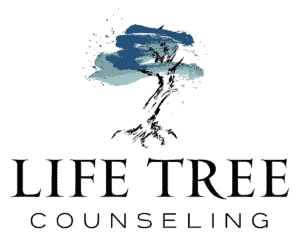This series of articles is a PERSONAL perspective/interpretation of The Twelve Steps of Alcoholics Anonymous.
The 12 Step program of Alcoholics Anonymous began on June 10, 1935 and has helped scores of people around the world obtain and maintain sobriety from drugs and alcohol.
STEP ONE—We admitted we were powerless over alcohol—that our lives had become unmanageable.
Step One is basically the first step of liberation from alcohol (and/or other addictive processes). It is at this point that we wave the white flag and say, “Okay! I’m done!” This step suggests powerlessness—which indeed is necessary for recovery. But, it is a paradox, indeed. Through admitting powerlessness over addictive substances/processes we actually gain a great deal of strength through recovery. This Step of the 12 Steps is absolutely necessary for any further sobriety to occur. As long as there is any doubt in our minds about whether or not we are powerless over alcohol we are in danger of turning to alcohol again. One of my favorite sentences in “Twelve Steps and Twelve Traditions” is “Our admissions of personal powerlessness finally turn out to be firm bedrock upon which happy and purposeful lives may be built.”
This leads us the remaining eleven steps of the program.
STEP TWO—Came to believe that a Power greater than ourselves could restore us to sanity.
Step Two is the beginning of the description of the spiritual aspect of the program—not religious, spiritual! That distinction is very important. The 12 Steps were developed in order to be “all inclusive”—all beliefs about a Higher Power are welcome. As a matter of fact, the idea that each individual person can create their own personal definition of a “God” or Higher Power is referenced many times in the literature of the program.
On page 12 in “Alcoholics Anonymous” is the question: “Why don’t you choose your own conception of God?” Each person can develop their own personal idea of a God/Higher Power. Why is this even important? Because experience has shown us that human willpower alone very often fails to help us stay sober. BUT, experience has also shown us that a God or Higher Power can help us to stay sober. Another favorite passage of mine in Alcoholics Anonymous comes at the end of the chapter “More About Alcoholism”—“Once more: The alcoholic at certain times has no effective mental defense against the first drink. Expect in a few rare cases, neither he nor any other human being can provide such a defense. His defense must come from a Higher Power.” (Italics mine)
STEP THREE—Made a decision to turn our will and our lives over the care of God as we understood Him.
“Twelve Steps and Twelve Traditions” teaches us that the “key” to this Step is willingness. Willingness will help us to make the decision to turn our thoughts (“will”) and our actions (“lives”) over to the God/Higher Power that we believe in. Again—“as we understood Him” is underlined for a reason. Your own personal idea and relationship with your God is what will help you to get and stay sober. Also important in this Step is the ACTION part of the Step. Steps One and Two of the 12 Steps involve reflection and contemplation. Step Three requires action. This is an inherent part of this Step. The following section from “Twelve Steps and Twelve Traditions” underscores this: “In fact, the effectiveness of the whole A.A. program will rest upon how well and earnestly we have tried to come to ‘a decision to turn our will and our lives over to the care of God as we understood Him’.” (Pages 34-35) Once we have decided to do this we can move on to Step Four of the 12 Steps of the A.A. program.
STEP FOUR—Made a searching and fearless moral inventory of ourselves.
This Step may sound very frightening and overwhelming when we first read it! Indeed, working the 12 Steps takes a great deal of energy and work, but the pride and fear that arise when we begin contemplating this Step are simply “bogeymen, nothing else” as the “Twelve Steps and Twelve Traditions” teaches us. (Page 49, paraphrased). This Step is hard work but very important in that it helps us look at our “character defects” in a realistic way. Indeed, the literature also teaches us that our “character defects”—also known as “instincts”—are what drive our drinking. So, it’s necessary to examine these parts of ourselves in order to be able to change. I believe that the 12 Steps help us change our character. When we’re able to change and grow through the A.A. Program, we are not only able to get and stay sober, but we’re also able to live happier and more peaceful lives.
References:
1. Alcoholics Anonymous, Fourth Edition; Alcoholics Anonymous World Services, Inc. 2001.
2. Twelve Steps and Twelve Traditions; Alcoholics Anonymous Services, Inc. 1952
***NOTE: this article is a personal interpretation of the Twelve Steps of Alcoholics Anonymous and is neither endorsed nor approved by Alcoholics Anonymous. ***
For more information call the counselors at Lifetree at (972) 234-6634
